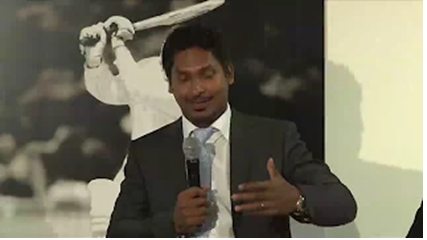WAR
CRIMINAL & FRIVOLOUS LITIGANT
As I read the Guardian report headed ‘Federal police
blame ‘oversight’ for delay in Australian review of Sri Lankan war crime
allegations’ my mind recalled the verdict by the Hon Justice Lucy McCallum
of the NSW Supreme Court of NSW. That was a complaint based on Defamation against
my husband’s siblings who for Court purposes in a testamentary matter in
Northern Sri Lanka claimed in Court to the effect that their brother’s marriage to me – a divorcee
was not acceptable to them. That was their escalation of their dislike to Court
level. Their lawyer in Sri Lanka asked me in a Northern Sri Lankan Court as to
why I needed the money? This led me to filing a defamation case against not
only the family leaders but also those in the family who directly benefitted
from our marriage but failed to support us. In turn they applied for me to be
banned as a frivolous litigant and asked for dismissal of my application. I
made my submission in writing and it was supported by my Affidavit as to how I
felt. In Court – where I am a junior power due to my ‘lay representation’ I
waited for the lawyer hired by the opposition to speak. When it was my turn – I
stood up and said words to the effect ‘if I am banned on the basis of the application
by this group whom I sponsored to come to Australia, then I would go back to
Sri Lanka’
In effect – that said that I would then prefer the Sri
Lankan system to the Australian system which kept demoting me. Relatively
speaking I did not directly experience racial discrimination in Sri Lankan
workplaces. The judge ruled to dismiss their counter claim as well as my
complaint on the basis that it was ‘out of Australian Jurisdiction’. This was
claimed because the words that I could ‘prove’ happened in Sri Lanka. Even
though the perpetrator Mrs Saraswathy Sabanathan was Australian – the court ruling was that it
lacked Jurisdiction.
As per the above report :
[Federal police blamed an “administrative oversight”
for huge delays in reviewing war crime allegations against a Sri Lankan man as
he travelled to and from Australia, documents show.
In 2019, human rights groups wrote to the Australian federal
police warning
that Jagath Jayasuriya, a retired Sri Lankan general, “has entered Australia
and may still be in the jurisdiction”.]
On the basis of the NSW Supreme Court ruling – in my matter – the actions happened
in Sri Lanka. The parties directly affected by the military were also Sri
Lankans. The only avenue available to Australians is through higher common bodies
such as the UN and through Subjective Powers exercised at governance level
through votes.
In 2009, a relative of my husband said words to the
effect ‘Tamils who emigrant as war refugees,
have to thank Prabakaran (LTTE leader).
Yesterday I confirmed this as follows:
[It is also interesting
to note that as per this Affidavit – those who stayed at ‘home’ considered
those who left after the 1971 Southern rebellion, as Che Guevara group. This is
true also of Tamils who stayed at home considering Tamils who emigrated after
1983 from when India got involved due to the 1983 pogrom against Tamils in
multicultural areas. They are recognized as LTTE by those who stayed at ‘home’]
A good proportion of Tamil war refugees
fall within this category of LTTE heirs. The complaints against Sri Lankan
military officers needs an Equal Opposition here in Australia. That could be
the Australian Military working through its government. The case against
Australian Ben Roberts-Smith is a clear example of our commitment to respecting
Sovereignty.
Members of the Australian Tamil Diaspora
who are committed to the process of law – would use the avenue I used. If the matter
is taken up on the basis of LTTE supporters then the Community would be limited
to the LTTE’s commitment to Law. The LTTE law is ‘summary execution of those
who express dissent – on the claim that they were ‘traitors’. If that is
what they got then that happened as per their Karma.
Civilians who suffered have to work at
their level to find closure. Any sharing of success in a Court of Law has to
reach civilians in their own language. The Northern Sri Lankan Judiciary failed
to uphold the customary law particular to Northern Tamils. They would be ‘lost’
in the sea of global judgements.

